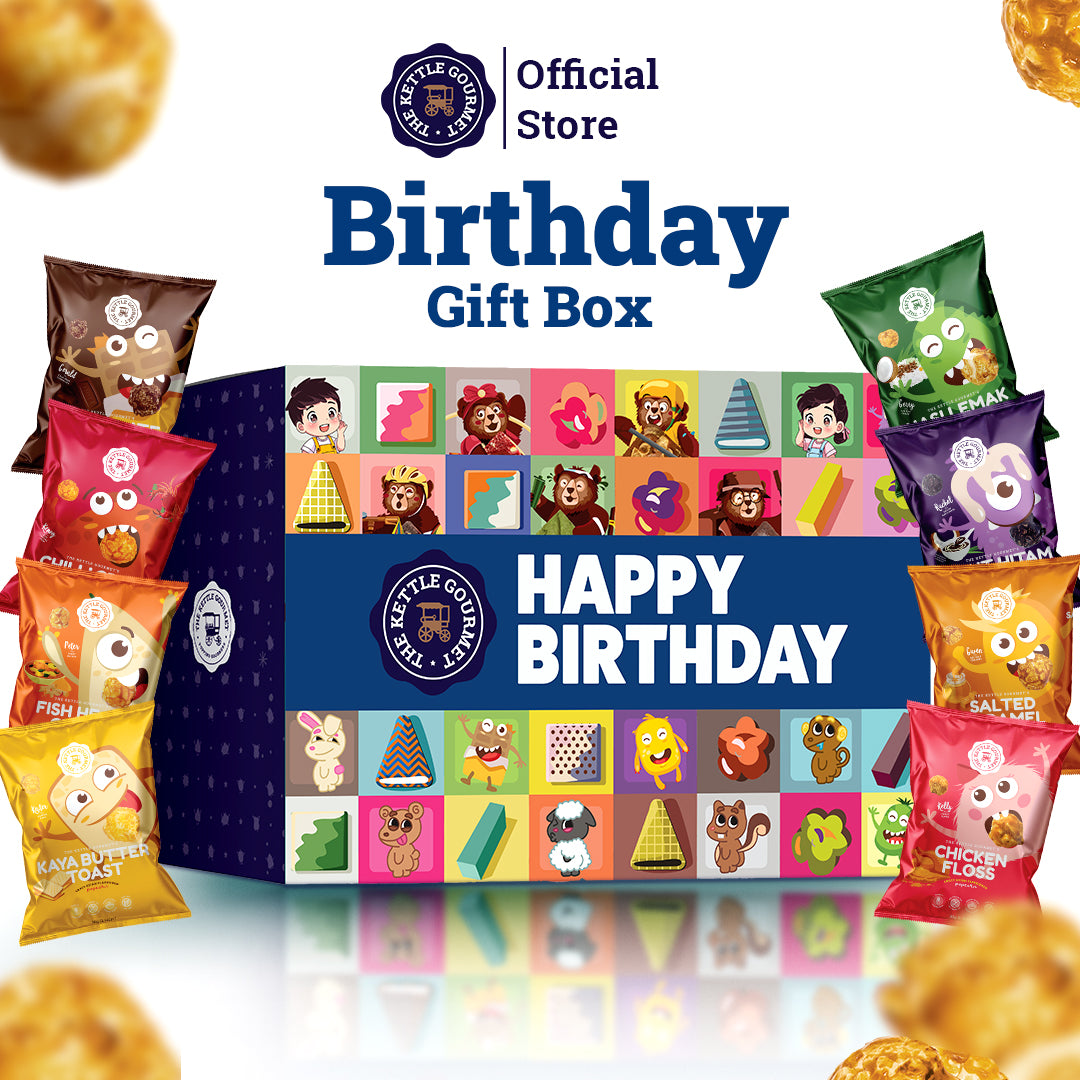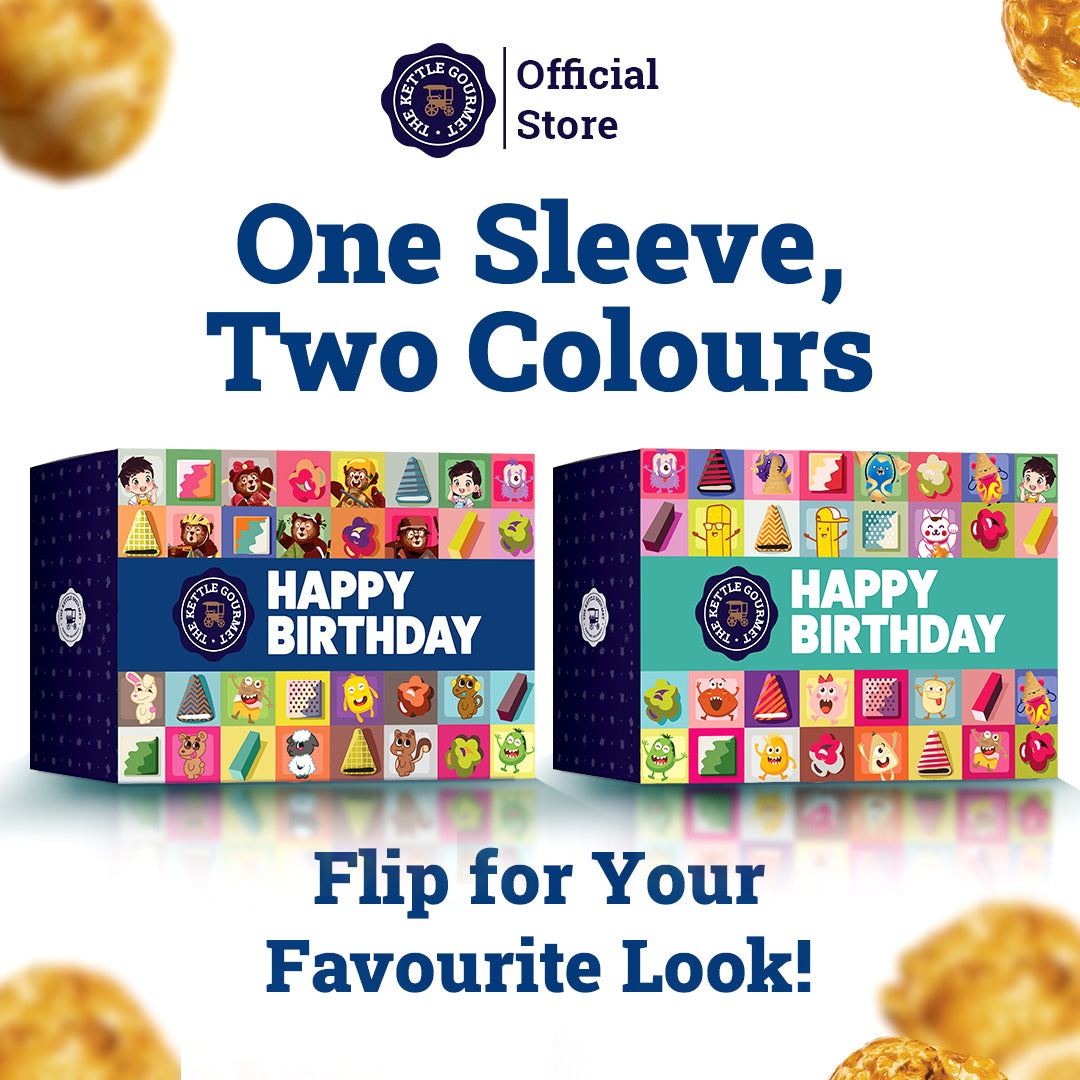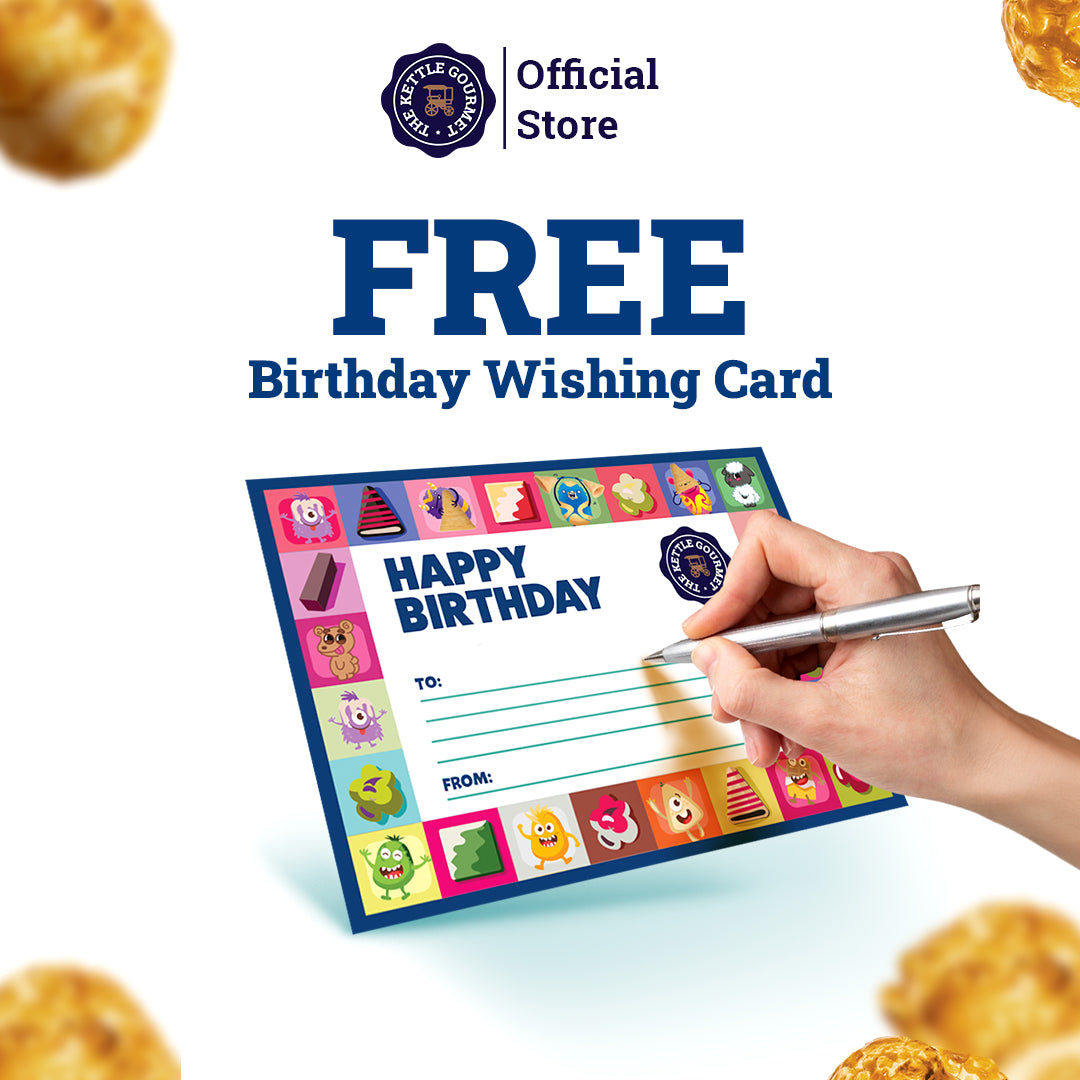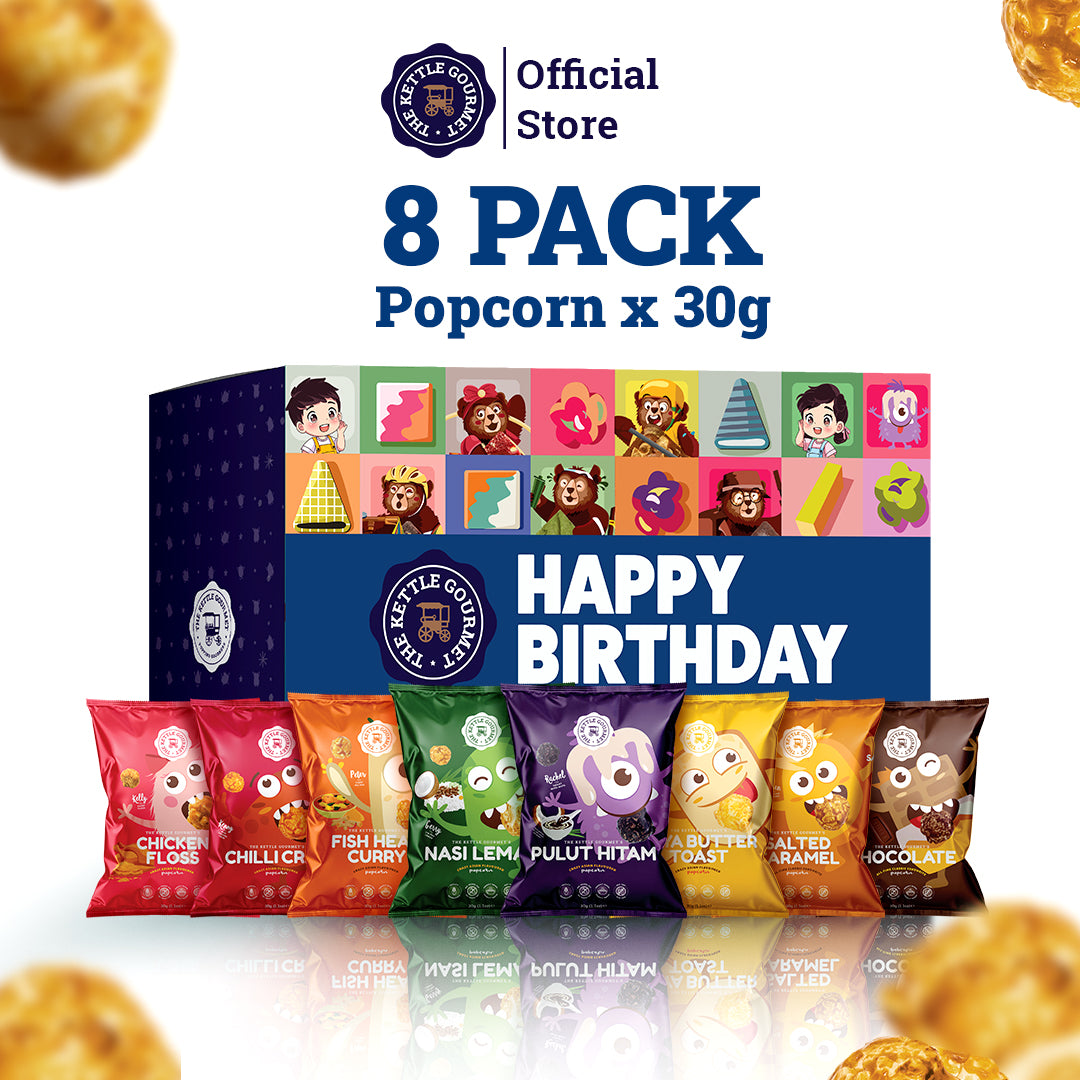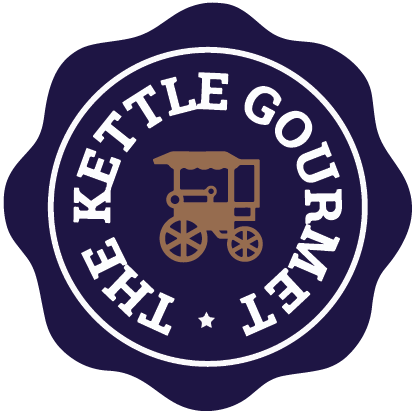The Kettle Gourmet Birthday Gift Box
The Kettle Gourmet Birthday Gift Box
Turn every birthday into a flavor-packed celebration with our Birthday Gift Box! Inside, you’ll find 8 unique and irresistible popcorn flavors that bring excitement to every bite.
It’s not just a gift—it’s an unforgettable experience!
Celebrate in style with our Birthday Gift Box! 🌈 With a uniquely designed sleeve featuring two stunning colors, you get to choose your favorite look. Whether it’s bold and vibrant or soft and subtle, it’s the perfect match for every celebration!
What's included:
- 1 x Nasi Lemak Popcorn (30g)
- 1 x Fish Head Curry Popcorn (30g)
- 1 x Chili Crab Popcorn (30g)
- 1 x Chicken Floss Popcorn (30g)
- 1 x Kaya Butter Toast Popcorn 3-Star Superior Taste Award (30g)
- 1 x Salted Caramel Popcorn (30g)
- 1 x Chocolate Popcorn (30g)
- 1 x Pulut Hitam Popcorn (30g)
- 1 x Gift Box with Birthday Sleeve
- 1 x Birthday Wishing Card
NOTE: CHICKEN FLOSS IS OUT OF STOCK, WILL BE REPLACED WITH KAYA BUTTER TOAST
Couldn't load pickup availability
🆓 Free Shipping for order $50+
DESCRIPTION
DESCRIPTION
INGREDIENTS & ALLERGEN INFO
INGREDIENTS & ALLERGEN INFO
INGREDIENTS: Cane sugar, non-Gmo corn kernel, glucose, cow’s milk butter, seasoning, soy lecithin, baking soda.
ALLERGEN: May contain traces of egg, milk, soy, peanuts and crustaceans.
DETAILS
DETAILS
